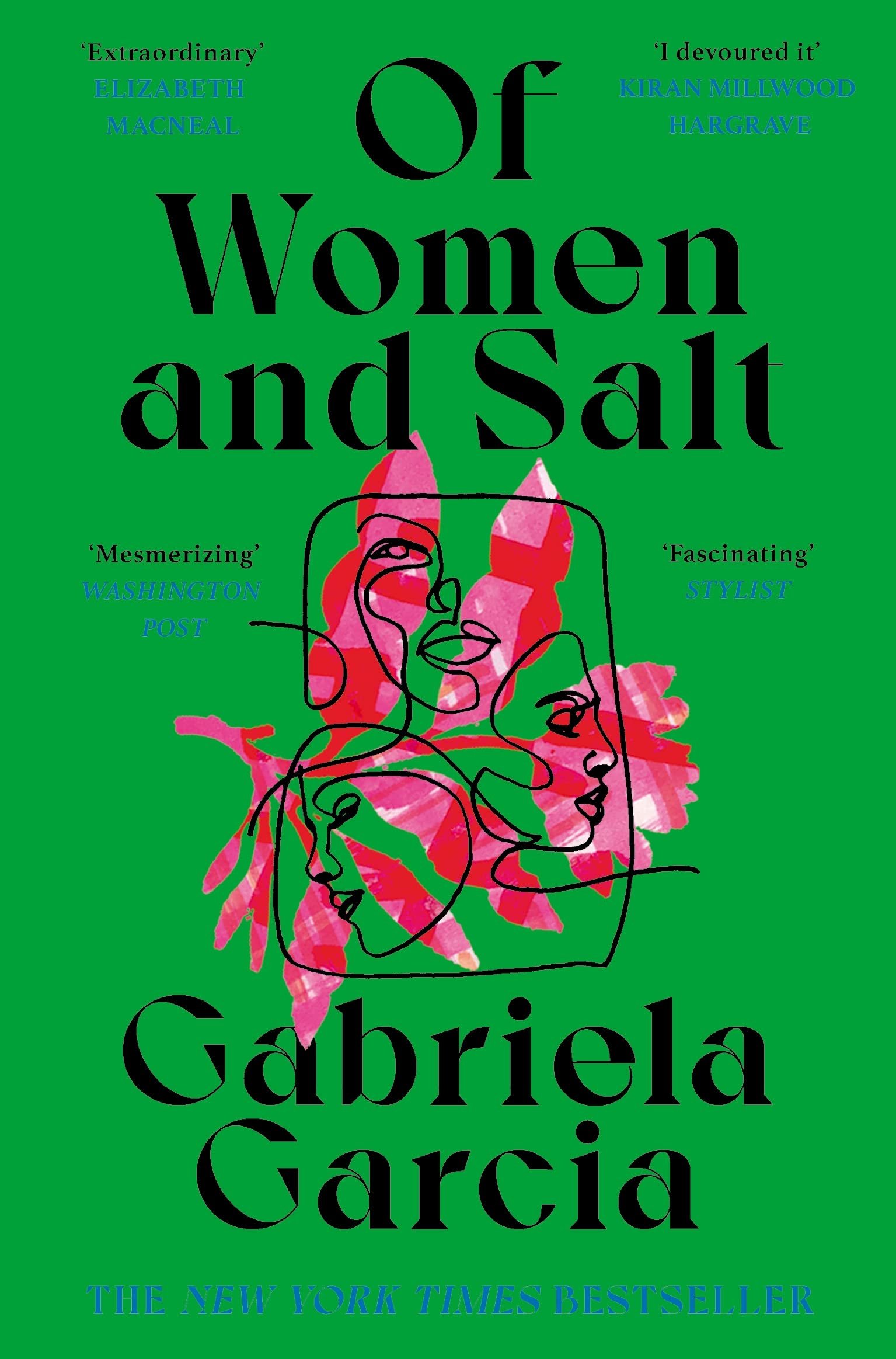Revelation and Excavation: A Conversation with Gabriela Garcia
Photo Credit: Andria Lo
“What excites me the most about art is that it’s the only space in which you glimpse another’s conscious and subconscious mind, even as you bring your own limited perspective to the work or the text.”
First and foremost, I wondered if you could talk a little bit about your writing process? I read that imagery is important to your writing and that your process tends to be a more immersive than prescriptive process – is that correct? And has that always been the way you prefer to write?
I often find image the easiest entry point into a story rather than starting with a character or a scenario in mind. Several of the chapters in Of Women and Salt were based around particular images that struck me such as a body washing ashore or a panther trapped in a neighbor’s house. It’s true also that I like to let my fiction unfold without too strict an idea of where the story is going. I usually start with a rough outline or a sense of the general direction I’m writing toward, but seldom do I end up with the story I originally envisioned.
Did you have any particularly significant influences while writing Of Women and Salt – whether from other literature or personal experiences?
Yes, there were many. One of the opening chapters draws on correspondence from the author Victor Hugo to Cuban workers and women in the 19th century that I first encountered in a museum on a trip to Havana and that stayed on my mind. I also write about an immigrant detention center in Texas that is similar to detention centers in which I spent time as an organizer for several years before I pursued a creative writing degree. In terms of literary influences, I was thinking a lot about writers who focus frequently on complex relationships between women like Elena Ferrante and Toni Morrison. And I was thinking about novel structures that experiment with voice and time and genre such as David Mitchell’s Cloud Atlas or Tommy Orange’s There There.
As one of my favourite quotes from the book is “she wanted to write her life into existence and endure”, I just wanted to ask if this was a sentiment that feels relevant to your own writing?
What excites me the most about art is that it’s the only space in which you glimpse another’s conscious and subconscious mind, even as you bring your own limited perspective to the work or the text. That I can open a book and be in the creative mind of someone who existed hundreds of years ago never ceases to amaze. I don’t know whether my work will endure in that way but yes, at times writing feels like a stamp of existence even if it’s just to say, here is how I was making sense of the world five years ago.
As Of Women and Salt spans generations, it could be described as being ‘historical’, even though it doesn’t read like a typical, linear historical narrative. Was it important for you to create a style of writing that feels more like glimpses into memory, as opposed to historical fiction?
I was interested in delving into the past to put some of the present into focus, but I knew that I didn’t want to write a sweeping, historical epic. There are only two chapters that delve into a more distant past, but the majority of the book takes place in modern times. I was interested in the kinds of echoes and conflicts that can exist through time–of the ways that the lives of characters in the book are often shaped by the decisions of women they don’t even know or barely know. And I wanted the kinds of breaks and fractures and glimpses that feel true to historical excavation–there is so much we can simply never know. I wanted the book to feel that way, and to leave room for readers to imagine into the gaps, rather than delving into every life in detail.
On a similar note, your book has been described as having a sparse yet lyrical style. Would you agree with this description of your style and do you think your poetry writing influences your style?
Certainly my poetry practice feeds into my fiction and vice versa; the kind of attention placed on just one sentence in a poetry workshop, for example, has made me consider language and syntax more meticulously even in my larger projects. I aimed for stylistic variance in the novel–I wanted each chapter to strike an entirely different tone and style. I think there are chapters in which the prose is sparser and others in which it is more adorned. There were times, such as a chapter in which Jeanette is descending into addiction, that I wanted the writing to read more frenetic and quick, and other times I valued more languid, sloping sentences. There are shifts in voice and perspective that also mirror these stylistic changes. But it’s possible sparse yet lyrical is a kind of sum total. Certainly experimenting with voice and style is an interest in both my poetry and fiction.
One significant theme of Of Women and Salt appears to be a focus on the complexities and contradictions of motherhood. Would you agree that the choices mothers have to make are fundamental to this theme?
I was interested in writing against some common motherhood tropes, in particular the all-sacrificing, suffering immigrant mother. So often we venerate sacrifice and selflessness as the inevitable price of motherhood without questioning the circumstances and inequities that force those sacrifices. For several of the mothers in the book there are no good or clear-cut choices but a lot of guilt or perceived judgement, and I think that speaks to the sometimes impossible standards to which we hold mothers and never society at large.
I’m interested in the idea of what is passed down from generation to generation, and you beautifully explore how different ideas of ‘truth’ are interpreted differently by different generations. Could you talk a little bit about how that idea links to memory and the stories we tell ourselves about our identities.
We all operate with limited knowledge, which makes a search for the truth incredibly difficult, a topic philosophers know well. And I think the slipperiness of truth is especially at work in memory and the stories we tell ourselves about ourselves—there is always another version. This makes for some of the best tension in a story for me; two characters can operate in the same narrative that looks vastly different from one perspective to the next. I think it’s true of real life too; we’re often talking past each other, living in our own versions of stories.
It seems significant that men are not present in the book itself – instead, the reader is shown the residual effects of abuse by men through the female characters. Assuming this omission was a conscious decision on your part, why was it of importance to you?
I’m interested in exploring systems of patriarchy and their residual effects in a lot of my writing, but I’m far more interested in how women navigate a patriarchal world than understanding or exploring male consciousness. I don’t think I’ve ever written fiction from the perspective of a man. So yes, it was definitely deliberate!
Many reviews of your book are quick to describe it as an ‘immigration novel’, which seems to suggest that the experience of immigration is a singular, monolithic experience. What are your thoughts on this? And were you conscious about presenting a real reflection of the divisions that exist in Miami?
It’s interesting that ‘immigration novel’ becomes a default descriptor, especially since the majority of the characters in the book are not immigrants, although of course immigration factors into the storyline. But I am interested in exploring some of the tensions that exist between immigrants and children of immigrants, between those who leave and those who stay, and so forth. And as the daughter of immigrants from Cuba and Mexico, I was very aware from a young age that class and racial divisions existed in Miami, and that my own parents experienced the city in different ways because of their different backgrounds.
Lastly, I’d love to know what inspired you to include salt in the title of the book? Does salt hold any symbolic or literal significance?
Salt has varied meanings in the Caribbean. There is a phrase, “esta sala’o” (“they are salted”), to signify when someone has a kind of danger or curse lurking. I noticed it as an element that came up multiple times in the novel, and I liked that it can take on varied significance.

